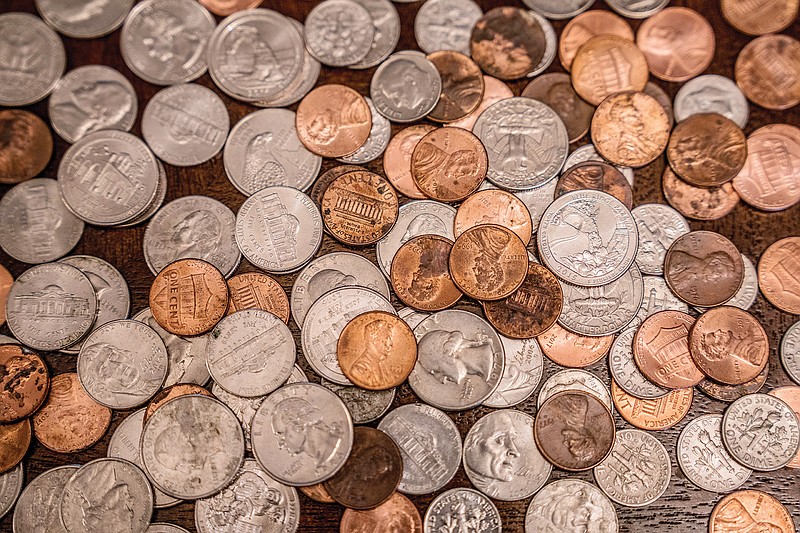We've all been there. You're in line to purchase something at the grocery store, gas station or drugstore, and the cashier asks whether you'd like to support wounded vets, kids in the hospital or homeless animals by rounding up your change or donating $1 or more.
Maybe you've already set up an extremely generous giving plan with your financial advisor, or maybe you prefer to know exactly what your money is going toward. But the person in line behind you has no idea, and you worry you'll be judged if you mumble "No, thank you. Not today."
So, should you feel guilty for choosing not to contribute to this particular cause? What's the deal with these fundraisers, anyway?
Here's what you need to know about checkout charity campaigns.
Top-Rated Charities
You can feel good about giving at the register to these charities, which received an A+ rating on independent watchdog CharityWatch’s Top-Rated list. Criteria for the list includes spending 75% or more of their budgets on programs, spending $25 or less to raise $100 in public support, and not holding excessive funds in their reserves.AfricareAll Hands and Hearts – Smart ResponseAmerican Civil Liberties Union FoundationAmerican Kidney FundAnimal Welfare InstituteBig Brothers/Big Sisters of America(national office)CARE USACatholic Relief ServicesChild Find of AmericaConservation FundComic ReliefDiabetes Action Research and Education FoundationDonorsChoose.orgEnvironmental Defense Action FundEqual Justice InitiativeFisher House FoundationHearing Health FoundationHispanic Scholarship FundMultiple Myeloma Research FoundationNARAL Pro-Choice America Foundation(national office)National Alliance to End HomelessnessNational Council on AgingPartners in HealthPetSmart CharitiesPopulation Services InternationalPrevent Child Abuse America (national office)Rotary Foundation of Rotary InternationalScholarship AmericaSemper Fi FundUnboundUnited Methodist Committee on ReliefWaterkeeper AllianceWorld Resources Institute
* They can bring in a lot of cash for the causes they benefit with little effort from the nonprofit. Plus, they give people a convenient way to make a small contribution that can potentially make an impact when combined with the donations of other customers and sometimes the store itself.
More than $441 million was raised in the U.S. in 2016 by a group of 73 point-of-sale fundraising campaigns that each raised more than $1 million, according to Engage for Good's 2017 America's Charity Checkout Champions report, a biannual survey identifying multi-million-dollar-plus point-of-sale fundraising campaigns. Those 73 programs have raised more than $4.1 billion over three decades.
* Many people are happy for the opportunity. According to a 2018 Catalist report on point-of-sale giving, of the 69% of consumers who reported having made a donation at the register in the last 12 months, 81% said they liked or didn't mind being asked. After all, it's not a bad thing to be reminded as you go throughout your day that there are people less fortunate than you, and you have the ability to help.
* In addition to being a convenient way for people to support charities, such drives allow companies to appear generous without necessarily contributing anything themselves. In a 2016 survey conducted by Good Scout, 60% of respondents said they had positive feelings about a company after being asked to donate to a cause at checkout.
* One of the reasons people decline to donate at the register is because they're unfamiliar with the charity or don't have enough information. So how do you know if a checkout charity is legitimate? Ask the store cashier. They should be able to tell you what the charity does, whether the store gives 100% of your donation to the charity and whether the store matches or otherwise contributes to the campaign.
But we're all in hurry. To avoid feeling judged by the people in line behind you, if you want more information before contributing, say something like, "I'm so glad you're making it convenient for people to donate to such a worthy cause! But it's easier for me to keep track of my donations if I make them online. Do you have their website so I can check it out?" Many, but not all, charities post their financials on their website. You can also check a charity's report on the Better Business Bureau's Wise Giving Alliance website at give.org, or see exactly what the organization does with donations by utilizing the IRS's Tax Exempt Organization Search at irs.gov/charities-non-profits/tax-exempt-organization-search.
* If you go to the trouble to research a charity, and find it's one you'd like to support, you may as well go ahead and make a more significant donation through the organization's website. Your donation will potentially make more of an impact, and you - rather than the store - can write off the donation when paying your income tax. Though it is also possible to write off your checkout donations if the amount and the name of the charity is listed on the receipt.
